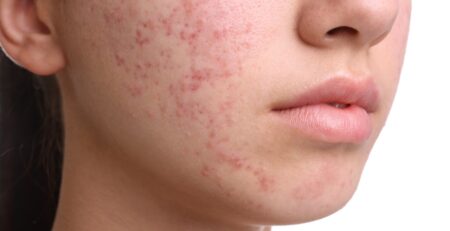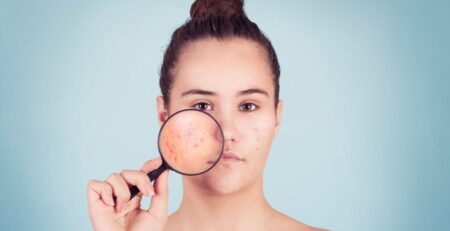PCOS and Vitamin D: Understanding the Best Form of Vitamin D for PCOS Symptoms
PCOS (polycystic ovary syndrome) is a complex condition that affects women’s reproductive health and can cause a wide range of symptoms. Research has shown that low levels of vitamin D may be associated with PCOS.
In this article, we will explore the best form of vitamin D for PCOS and how it can help with the symptoms of PCOS.
How Vitamin D Helps PCOS Patients?
Vitamin D deficiency has been linked to PCOS, as low levels of vitamin D have been found in women with the condition. Vitamin D may help PCOS patients in a few ways:
- Insulin resistance: Vitamin D deficiency has been linked to insulin resistance, which is a common issue in women with PCOS. Supplementation with vitamin D may help improve insulin sensitivity.
- Hormone regulation: Vitamin D may play a role in regulating hormones involved in PCOS, such as testosterone and luteinizing hormone (LH).
- Inflammation: PCOS is associated with chronic inflammation, and vitamin D has anti-inflammatory properties.
- Ovarian function: Vitamin D may improve ovarian function and increase the chances of ovulation in women with PCOS.
What Is The Best Form Of Vitamin D for PCOS?
There are several forms of vitamin D available, including
- Vitamin D2 (ergocalciferol) and
- Vitamin D3 (cholecalciferol)
Vitamin D3 is considered the more effective form, as it is the form of vitamin D that is naturally produced by the body when the skin is exposed to sunlight.
Additionally, vitamin D3 is better absorbed and utilized by the body than vitamin D2. Therefore, it is generally recommended to use vitamin D3 supplements for PCOS. However, it is always best to consult a healthcare professional before starting any supplement regimen.
Vitamin D3 Dosage For PCOS
The recommended dosage of Vitamin D3 for PCOS (Polycystic Ovary Syndrome) can vary depending on the individual and their specific needs. A common dosage range is between 1000-5000 IU per day, taken under the guidance of a healthcare professional.
Individual needs may vary, and it is best to consult a healthcare professional to determine the appropriate dosage for you.
Check whether you can have hair loss as a PCOS symptom.
Which Foods Are Rich In Vitamin D3?
Vitamin D3 is found in a limited number of foods, and it can be difficult to get enough of it through diet alone. Some food sources of vitamin D3 include:
- Fatty fish: Salmon, tuna, mackerel, and sardines are all good sources of vitamin D3.
- Egg yolks: One large egg yolk contains about 5-10% of the daily value of vitamin D3.
- Beef liver: A 3-ounce serving of beef liver contains about 30% of the daily value of vitamin D3.
- Fortified foods: Some foods, such as milk, cereal, and orange juice, are fortified with vitamin D3.
- Mushrooms: Some mushrooms, especially those exposed to UV light, can have a significant amount of D2, a form of vitamin D.
Is vitamin D and D3 the same?
Vitamina D and D3 are forms of the same vitamin but they differ in chemical properties. Vitamin D is a fat-soluble vitamin that plays a crucial role in maintaining bone health and overall health. Vitamin D3, also known as cholecalciferol, is the form of vitamin D that is synthesized in the skin when it is exposed to sunlight.
Vitamin D can be obtained from food sources such as fatty fish, egg yolks, and fortified foods, as well as from sunlight exposure. On the other hand, vitamin D3 is available as a dietary supplement.
Vitamin D2, also known as ergocalciferol, is another form of vitamin D that is found in some foods, such as mushrooms, and is also available as a dietary supplement. Both D2 and D3 are converted by the liver and kidneys into the active form of vitamin D called calcitriol.
Can Vitamin D Cure My PCOS?
Vitamin D supplementation alone is unlikely to cure PCOS, as it is a complex condition with multiple underlying causes. However, it may help to improve some of the symptoms associated with the condition.
Studies have suggested that supplementing with vitamin D may help improve insulin resistance and weight loss in women with PCOS. Additionally, vitamin D has been found to help regulate menstrual cycles and reduce the levels of androgen hormones in the body.
What Are The Main Causes of PCOS?
The exact cause of PCOS is not fully understood, but it is thought to be related to a combination of genetic, environmental, and lifestyle factors. The main reasons of PCOS are:
Hormonal imbalances
One of the main features of PCOS is an imbalance of hormones such as estrogen, progesterone, and androgen. High levels of androgen (male hormones) can cause symptoms such as irregular menstrual cycles, acne, and hirsutism (excessive hair growth)
Insulin resistance
Many women with PCOS have insulin resistance, which means that their cells don’t respond well to insulin, a hormone that regulates blood sugar levels. Insulin resistance can lead to an increase in the production of androgens and can make it harder to lose weight.
Genetics
PCOS tends to run in families, and some studies suggest that certain genetic variations may increase the risk of developing the condition.
Environmental factors
Some studies suggest that exposure to certain toxins and chemicals may play a role in the development of PCOS.
Lifestyle factors
Being overweight or obese and a lack of physical activity can also contribute to the development of PCOS.
The causes of PCOS can vary from person to person, and it may be a combination of different factors that lead to the development of the condition.
How Vitamin D Helps Women’s Health?
Vitamin D plays a crucial role in maintaining overall health and well-being in women. Some of the ways in which vitamin D may benefit women’s health include:

Bone health
Vitamin D helps the body absorb calcium, which is essential for maintaining strong and healthy bones. This is particularly important for women, as they have a higher risk of osteoporosis (brittle bones) than men.
Reproductive health
Vitamin D has been found to play a role in regulating menstrual cycles and ovulation, which is important for fertility. It also may help alleviate some symptoms of polycystic ovary syndrome (PCOS).
Cancer prevention
Vitamin D may help to reduce the risk of certain types of cancer, such as breast cancer. Studies have shown that vitamin D plays a role in regulating cell growth and differentiation.
Cardiovascular health
Vitamin D has been found to help regulate blood pressure and improve overall heart health.
Immune health
Vitamin D plays a role in the functioning of the immune system, which helps to protect the body against infection and disease.
Final Words
Vitamin D is an essential nutrient that plays an important role in maintaining overall health and well-being, and has been found to be linked to PCOS.
Vitamin D3 is the most effective form of vitamin D for treating PCOS, and it may help alleviate symptoms such as insulin resistance and weight loss. However, vitamin D supplementation alone is unlikely to cure PCOS, and it should be used as part of a comprehensive treatment plan that addresses all of the symptoms of PCOS.
It’s always best to consult with a healthcare professional to determine the best course of treatment and to monitor your vitamin D levels.












Leave a Reply